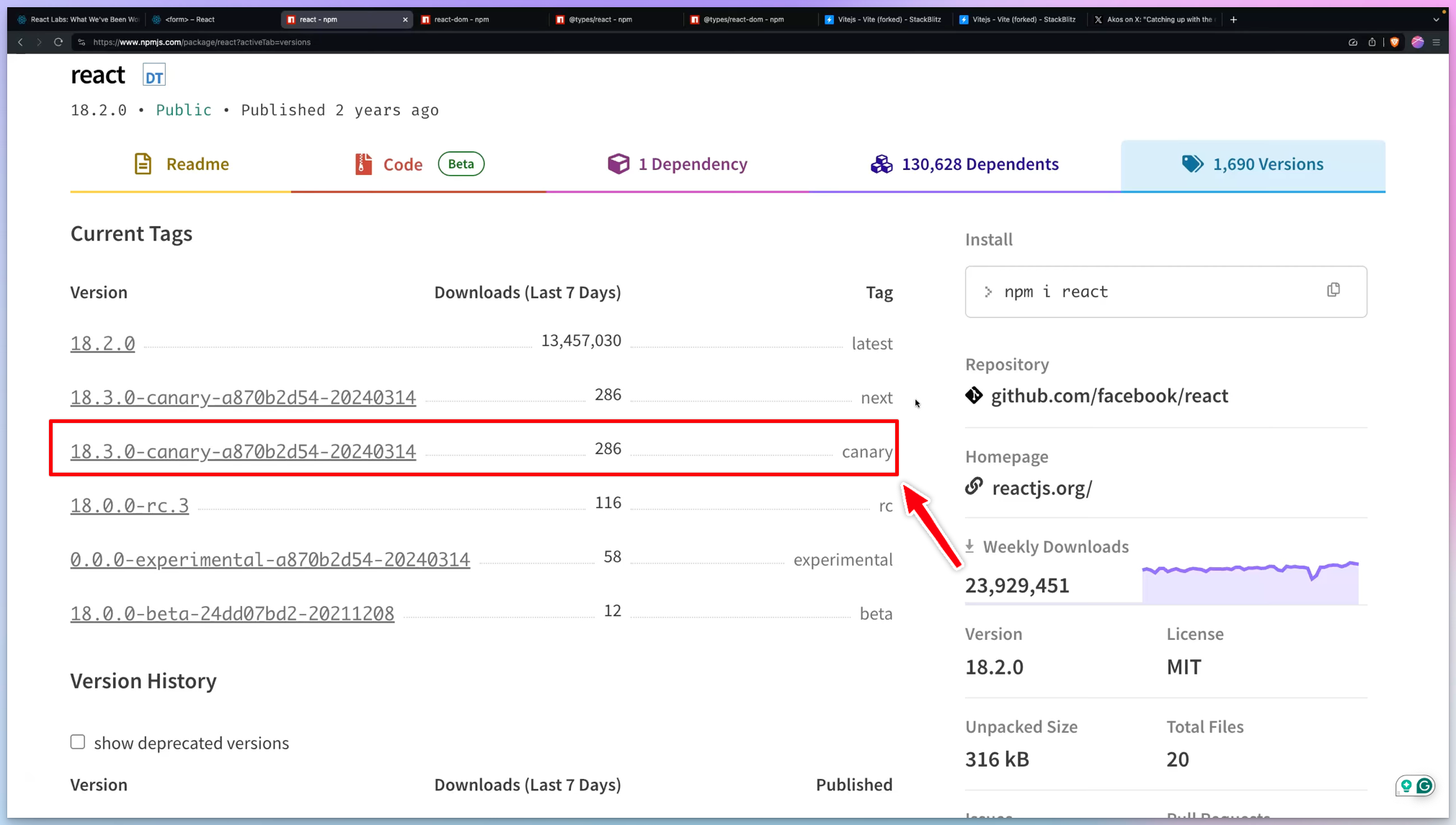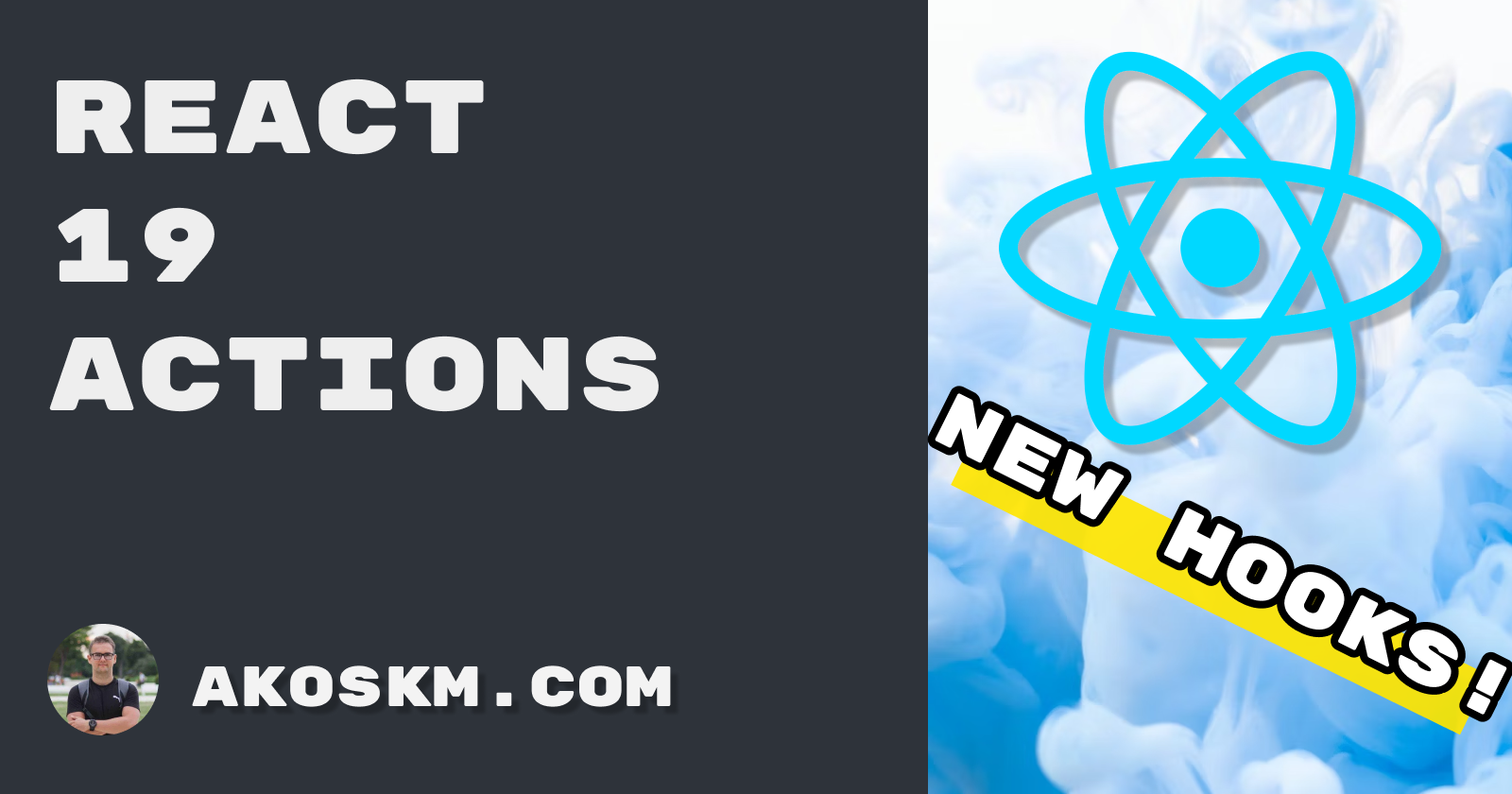One reason React remains the top framework is its ability to stay updated, address current challenges developers encounter, and act on them.
Let's delve into the core features that are stirring excitement among developers.
For each hook, I will explain what it does and give a real-world use case.
I also made a video about me trying out all these features and explained how you can do the same, so if you prefer that version, click here:
All right!
Now, let's dive into the new hooks.
🔍 useFormState: Interactivity Redefined
useFormState will be key for simplifying server interactions.
Capabilities: This hook manages form submission states and captures server responses.
Practicality in Action: Imagine a login process.
useFormStatecan immediately display server responses, like a "Login Failed" message, directly enhancing user engagement and feedback. No need for the usualuseEffect+setMessagecombo.Implementation Insight: In use,
useFormStatecan handle server communication during form actions, capturing and presenting server responses easily.
🔄 useFormStatus: Keeping Users Informed
useFormStatus focuses on enhancing the form submission experience.
Function: It provides a
pendingflag, toggling between true or false to indicate submission progress.User Experience: This flag will be a huge help in displaying loading animations or changing button texts during data submission, keeping users engaged and informed.
🌈 useOptimistic: Proactive Feedback
React 19 introduces the useOptimistic hook, which adds a layer of dynamic user feedback to web applications.
Understanding
useOptimistic: This hook is designed for scenarios where you want to anticipate a successful outcome. It allows developers to update the UI optimistically, assuming the best-case scenario post an action like a form submission.Real-World Use Case: Imagine a login form. With
useOptimistic, you can immediately show a message like "Loading your dashboard..." after the user hits submit, even before the server responds. This optimistic feedback can enhance the user experience by making interactions feel faster and more responsive.Balancing Optimism with Reality: Once the actual server response arrives, the hook transitions from the optimistic state to the real outcome. For instance, if the login fails, it will replace the "Loading your dashboard..." message with an appropriate error message.
🚀 Leveraging Canary Versions in React 19
Want to test out React 19? Here's how you can find the latest canary version and use it in your app:
Finding Canary Versions: Visit
npmjs.com, search for "react", and navigate to the versions tab. Look for versions tagged as "canary".
Choosing the Right Version: Avoid versions released on the same day due to potential issues. Opt for a version released at least a day or two ago.
Synchronizing Versions: Ensure that your
react-domversion matches your React version. Copy the version numbers and update yourpackage.jsonfile in your development environment.Installation: Run
npm installandnpm run devto start experiencing the latest features of React 19.
If you'd like to give React 19 a shot now, you can also use this Stackblitz I created.
React 19 will be an amazing release!
How are you planning to integrate these hooks into your work? Share your thoughts and strategies below! 👇
For a deeper dive, check out the full video here and stay on top of the latest in React development. Happy coding, and stay inspired! 🎉💻🌐
Join the Discussion: What's your take on React 19's new features, and how will you use them in your projects? Comment below! 💬🤔🚀
Sources:
